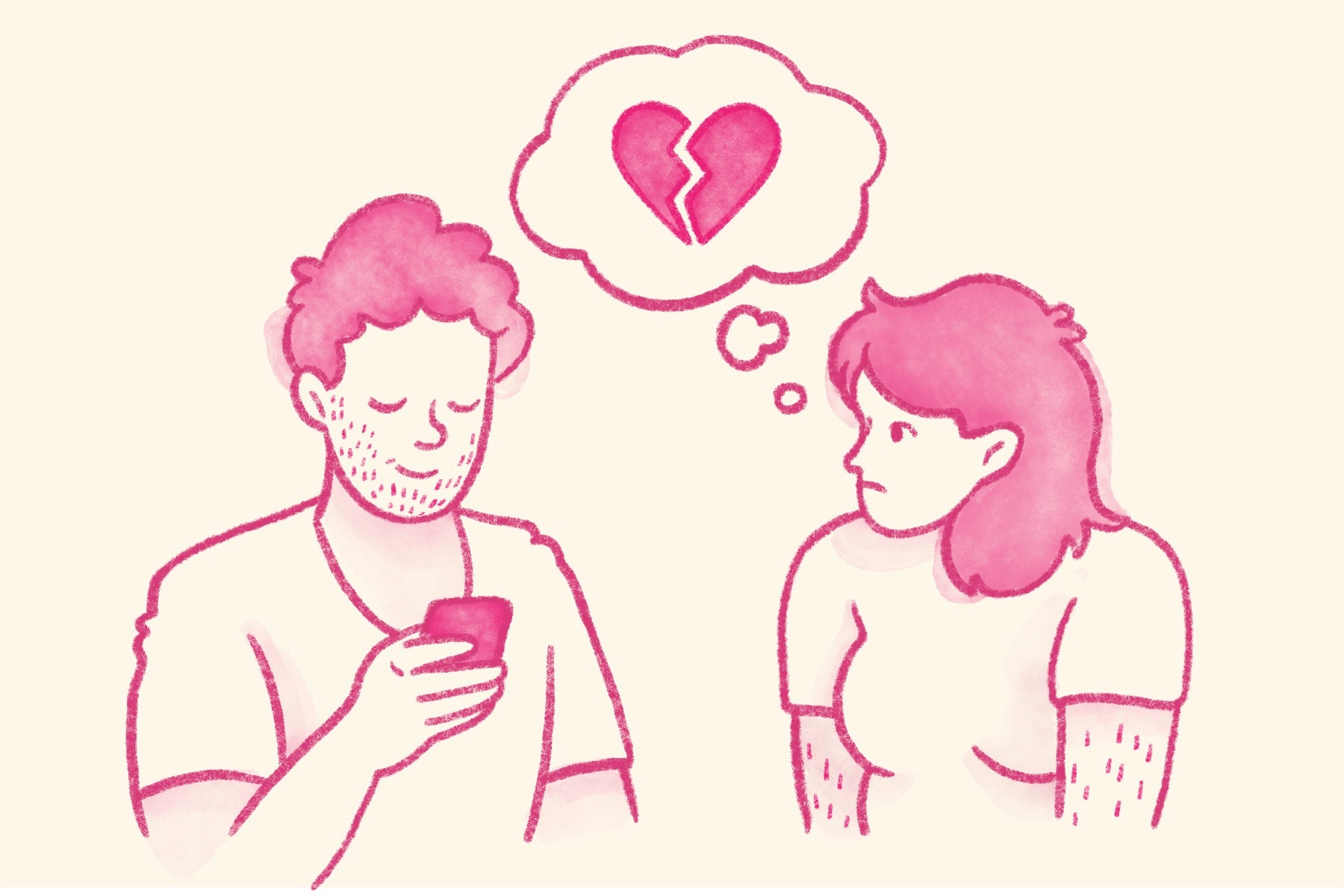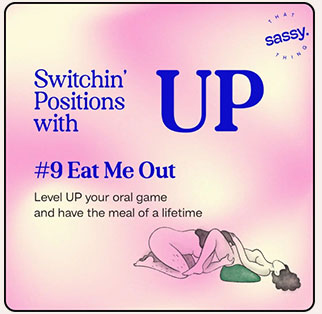Your cart is currently empty

Most of us have strong emotions towards cheating in relationships. Whether we've been the ones to check a lover's phone and find evidence of snooping, the ones who've told white lies and snooped around, or been the shoulders of support for besties who've had their hearts broken–almost all of us are familiar with the subject of affairs.
A survey revealed that 55% of married Indians have been unfaithful to their partners at least once. And even if some of us might be unfazed by how commonly it happens, it isn’t hard to comprehend the repercussions that cheating can have, for everyone involved.

Oftentimes, we assume the motivation was to just get DTF–and sometimes, this might be the very reason–but this outlook can take away from the complexity of the situation, and of human emotions.
So let’s delve into the reasons that people might cheat, that are about more than just s-e-x. And remember to check out Aunt Sassy’s tenderly curated collection of self-care products, that won’t ever cheat on you and your pleasure!
#1 You’re Not on the Same Page
Cheating in simple words, is going against the agreements of a relationship. But what if the agreements of the relationship haven’t been established clearly? In many cases, partners assume that they understand each other’s boundaries because they’re close.
However, actually figuring it out together through a heart-to-heart can strengthen the bond and provide better relationship security. It’s key to remember that both physical and emotional boundaries should be discussed. Few questions to think about can be:
'How do you feel about your partner cuddling with another person?'
'Are you as partners okay with the idea of having late night conversations with a crush and not telling each other?'

Whether it's a “casual” relationship or an open relationship, it helps to know what partners expect from each other. It’s also important to remember that each of our understandings of intimacy are shaped by our different identities.
Being neurodivergent, queer, polyamorous, or disabled, can encourage unique interpretations of love, which call for conversations on what type of interactions outside the relationship partners are comfortable with.
#2 Trying to Reignite the Spark, but with Another
When times have been rough and the honeymoon stage seems like it was forever ago, it can feel frustrating to know what to do. (Pro tip: Have you tried gifting your partner one of our personal massagers?
They're great for partnered playtime and nothing says 'I care about you' like Aunt Sassy's pleasure toys.) Rocky periods in relationships may cause people to search for emotional intimacy and intellectual satisfaction in their flirtations with folks outside the relationship.
According to a study, those who felt neglected in their relationships or a loss of connection, are more likely to form some sort of emotional attachment with their affair partner. Cheating is also more likely to lead to the end of a relationship when it rises out of feelings of neglect.

#3 Serving Revenge
The situation was already sticky..and it just got stickier (unlike our non-sticky intimate lubricant DTF, which is all about that smooth lovin’). Revenge cheating might seem appealing when a partner has been on the receiving end of disrespectful behaviour, or another partner’s infidelity.

Partners who revenge cheat are also more likely to confess about their adulterous behaviour, perhaps to rub it in the face of their significant other. While it may help the partner to feel a temporary sense of power, in the long-term this can be hurtful even to themselves–which makes it necessary to reflect on such motivations and to try and prevent further psychological scarring.
Also Read: The intimacies of after sex
#4 It Just Happened
“I was drunk and I wasn't thinking clearly.” I know, Aunt Sassy doesn’t buy it either. Cheating, whether sober or intoxicated, is cheating. While sober cheating is more conscious, intoxicated cheating may point to desires that one hasn’t admitted to. It might also be an expression of some sort of frustration within or outside one’s relationship, such as going through a particularly stressful time at work.
Partners who cheat because of intoxication or out of stress, report lower physical satisfaction in their affairs, which also tend to be short-lived. The lack of opportunity that such situations provide for conversations with the partner-in-crime about pleasure preferences and aftercare, may point to why they might experience lower satisfaction.

Guilt might also be a factor that causes low satisfaction, since cheating is attributed to the situation rather than significant emotional discontentment with the relationship, which may cause one to feel worse about their actions.
#5 It’s Not You, it’s Me
We tend to assume by default that cheating in relationships occurs when there’s something wrong. This is the “symptom theory”–the idea that cheating points to a symptom in the relationship that needs to be treated. But it’s possible sometimes that the relationship is everything that one could want it to be.

Cheating happens in happy relationships too, even non-monogamous ones where boundaries with other partners have been carefully discussed. Being with a fling may give one a window into other parts of themselves, perhaps the parts that they aren’t able to connect to, with their partners.
In cases where one gets frisky with an old flame, it might feel good to connect with a part of themselves that they might feel nostalgic about. When cheating occurs because of such motivations, it becomes necessary to discuss how to bring the possibility of exploring different parts of the self within one’s relationships.
Our adult products can certainly help you mix things up, with vibes that offer that magic touch at all sorts of pressures and frequencies.
#6 Question for the Culture
In a society where patriarchal, heteronormative, monogamous, and ableist norms are enforced on pleasure, sometimes cheating can offer a sense of freedom.
When pleasure education for women and gender non-conforming people is looked at as taboo, many people end up in relationships where they do not experience satisfaction or care.
Queer people may cheat because of internalised queerphobia and real concerns of safety around being transparent about their orientations and dating life. While again none of this really excuses betraying someone's trust, it can point to systemic issues that need to be tackled so that everyone has fair access to owning their pleasure.

Cheating can cause a lot of anxiety and pain. But it can also serve as lessons for growth, and force us to reflect on pertinent questions about ourselves, our relationships, and the world around us. Partners trying to patch things up after instances of cheating in the relationship, can reach out to resources outside the relationship, such as other partners, friends, and relationship therapists. And as always, Aunt Sassy's here rooting for you boo!
----
About the Author













